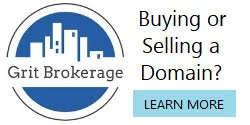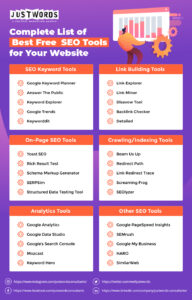When it comes to choosing a domain name for your website, you might find yourself wondering, “Are long domain names bad?” It’s a valid question, as the length of a domain name can impact its usability, memorability, and search engine optimization (SEO) potential. In this article, we’ll explore the pros and cons of long domain names, and whether they truly have a negative impact on your online presence.
Nowadays, brevity is often valued in the digital world. Short and snappy domain names are seen as more desirable, as they are easier to remember and share. However, that doesn’t mean that long domain names are inherently bad. In fact, they can have their own advantages. So, let’s dive deeper into this topic and uncover the truth about long domain names.
Long domain names can have both advantages and disadvantages. On one hand, longer domain names may be more descriptive and memorable, making it easier for visitors to understand what your website is about. On the other hand, they can be harder to type and remember, which could potentially lead to fewer visitors. Additionally, long domain names may not fit well in social media posts or print materials. It’s important to consider your target audience and the specific goals of your website when deciding on a domain name length.

Are Long Domain Names Bad?
Long domain names have been a topic of debate among website owners and marketers. Some argue that long domain names are bad for various reasons, while others believe that they can still be effective. In this article, we will explore the pros and cons of long domain names and determine whether they are truly detrimental to a website’s success.
What is a Long Domain Name?
A long domain name is typically defined as a web address that contains more than the average number of characters. While there is no set rule for what constitutes a long domain name, it is generally agreed upon that anything beyond 15 characters can be considered long. For example, “bestbusinesssolutionsthatcansolveyourproblems.com” would be considered a long domain name.
The Pros of Long Domain Names
While many people argue against long domain names, there are actually some advantages to using them. One of the main benefits is that they can be more descriptive and memorable. Long domain names allow website owners to include keywords or phrases that accurately represent their business or website content. This can help improve search engine optimization (SEO) and make it easier for users to remember the website address.
Another advantage of long domain names is that they are often more unique. With shorter domain names, it can be challenging to find an available option that accurately reflects your brand or business. Long domain names, on the other hand, provide more room for creativity and allow you to create a distinct online identity.
The Cons of Long Domain Names
Despite the potential benefits, there are also some drawbacks to using long domain names. One of the main concerns is that they can be difficult to type and prone to errors. Long domain names increase the likelihood of users misspelling or mistyping the address, which can lead to lost traffic and potential customers.
Additionally, long domain names can be harder to brand and market effectively. Shorter domain names are often catchier and easier to remember, making them more suitable for branding purposes. Long domain names may require more effort and resources to establish brand recognition and ensure that users remember and associate the name with your website or business.
Long Domain Names vs. Short Domain Names
When it comes to choosing between long and short domain names, it ultimately depends on your specific needs and goals. Short domain names are generally easier to type, remember, and brand. They can be more visually appealing and may have a higher resale value. On the other hand, long domain names can be more descriptive, keyword-rich, and unique. They offer more flexibility in terms of finding an available option that accurately represents your brand or business.
In terms of SEO, both long and short domain names can perform well if they are optimized correctly. Search engines consider various factors when ranking websites, and domain name length alone is not a significant determining factor. However, it is important to note that users may perceive long domain names as less credible or professional compared to shorter alternatives.
Tips for Choosing a Long Domain Name
If you decide to go with a long domain name, there are a few tips to keep in mind. Firstly, ensure that the name is still easy to remember and type accurately. Avoid using excessive hyphens or special characters that could confuse users. It’s also essential to consider the readability and aesthetics of the domain name. Make sure it flows well and is visually appealing.
Furthermore, prioritize keywords that are relevant to your business or website content. Including relevant keywords in your domain name can help improve your SEO and attract targeted traffic. Conduct keyword research to identify the most suitable keywords for your industry or niche.
In conclusion, long domain names can have both advantages and disadvantages. While they offer more descriptive options and can be memorable, they may also be harder to type and brand effectively. Ultimately, the choice between a long or short domain name depends on your specific needs and goals. Consider factors such as branding, SEO, and user experience when making your decision.
Key Takeaways: Are Long Domain Names Bad?
- Long domain names are not necessarily bad.
- They can be descriptive and memorable.
- However, shorter domain names are generally easier to remember.
- Long domain names may be more difficult to type and prone to typos.
- It’s important to strike a balance between length and clarity when choosing a domain name.
Frequently Asked Questions
1. Are long domain names bad for SEO?
Long domain names alone do not directly impact SEO. Search engines like Google do not penalize websites solely based on the length of their domain names. However, there are some considerations to keep in mind when choosing a domain name for SEO purposes.
First, long domain names can be harder for users to remember and type correctly, potentially resulting in fewer direct visits to your website. Additionally, long domain names may appear less trustworthy or professional to users, which could lead to lower click-through rates.
2. Can long domain names affect website loading times?
In general, the length of a domain name does not have a significant impact on website loading times. The loading speed of a website is primarily determined by factors such as server performance, file sizes, and the efficiency of website coding.
However, it is worth noting that longer domain names may contain more characters, which could result in slightly larger URLs. While the difference in size is usually minimal, shorter URLs are generally considered more user-friendly and can be easier to share and remember.
3. Are there any advantages to using long domain names?
While long domain names may have some potential drawbacks, there can also be advantages to using them. One advantage is the potential for more descriptive and keyword-rich domain names. Longer domain names can include relevant keywords that help convey the purpose or content of the website, which can be beneficial for SEO.
Longer domain names may also be more available for registration, as shorter and more common domain names are often already taken. This can provide an opportunity for businesses or individuals to secure a unique and memorable domain name that aligns with their brand or niche.
4. How can I make a long domain name more user-friendly?
If you have a long domain name but still want to make it more user-friendly, there are a few strategies you can consider:
First, you can use hyphens to separate words within the domain name. This can make it easier for users to read and understand the individual words in the domain.
Second, focus on creating a memorable and catchy brand name or tagline that can be associated with the long domain name. By promoting the brand or tagline alongside the domain, users may be more likely to remember and type it correctly.
5. What are some tips for choosing an effective domain name?
When choosing a domain name, it’s important to consider both SEO and user experience. Here are some tips to help you select an effective domain name:
– Keep it short and concise: Shorter domain names are generally easier to remember and type correctly.
– Include relevant keywords: Incorporating relevant keywords in your domain name can help convey the purpose of your website and potentially improve SEO.
– Make it memorable: Choose a domain name that is catchy, unique, and easy to remember.
– Avoid numbers and hyphens: Numbers and hyphens can make domain names more confusing and harder to remember.
– Consider your target audience: Think about your target audience and choose a domain name that resonates with them and aligns with your brand or niche.
Are Long Domain Names Bad? Find Out the Truth. By NamingGenerator.com: Free Domain Name Generator
Final Thought: The Verdict on Long Domain Names
After exploring the question, “Are long domain names bad?” it’s clear that there is no definitive answer. While some argue that shorter domain names are easier to remember and type, others believe that longer domain names can be just as effective if they are relevant and memorable. Ultimately, the success of a domain name depends on various factors, including the target audience, the purpose of the website, and the overall branding strategy.
When it comes to search engine optimization (SEO), it’s important to consider the impact of domain length. While shorter domain names may have a slight advantage in terms of being easier to include in anchor text and backlinks, longer domain names can still rank well if they contain relevant keywords and provide valuable content. The key is to strike a balance between length and relevance.
In conclusion, the length of a domain name should not be the sole determining factor when deciding on a website’s URL. Instead, focus on creating a domain name that aligns with your brand, resonates with your target audience, and is optimized for search engines. Remember, it’s not just about the length of the domain name; it’s about the value and relevance it brings to your online presence. So, choose wisely and let your domain name become a memorable and effective tool in attracting visitors to your website.







